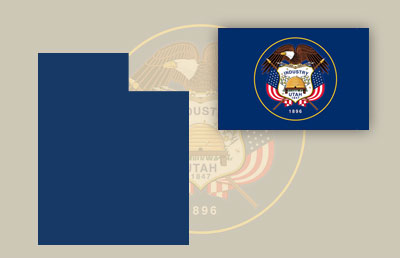Utah Modifies Provisions under Consumer Credit Protection Act and Licensing Provisions under RMPLA

Consumer Credit Protection Act
The State of Utah modified provisions under its Consumer Credit Protection Act. These provisions are effective on May 14, 2019 (or 60 days following adjournment of the current legislative session).
Section 6 of the amendment modifies the penalty for violating the Act to “no greater than $100,000 in the aggregate for related violations concerning more than one consumer unless the violations concern 10,000 or more consumers who are residents of the state; and 10,000 or more consumers who are residents of other states; or if the person agrees to settle for a greater amount.” The amendment also establishes that an enforcement action filed under the Act shall commence no later than five years after the day on which the alleged violation last occurred.
Section 9 of the amendment permits funds in the Attorney General Litigation Fund to be used for education and outreach on certain matters and any balance in the fund in excess of $4,000,000 at the close of any fiscal year shall be transferred to the General Fund.
Residential Mortgage Practices and Licensing Act
The State of Utah amended provisions under its Residential Mortgage Practices and Licensing Act. These provisions are effective on May 14, 2019 (or 60 days following adjournment of the current legislative session).
Section 1 amends provisions regarding the Division of Real Estate’s (Division) issuance of a citation and states that the provisions of Title 63G, Chapter 4, Administrative Procedures Act, do not apply to the issuance of a citation under certain circumstances listed under Section 1 (4) of the amendment unless a licensee or another person authorized by law to contest the validity or correctness of a citation commences an adjudicative proceeding contesting the citation.
Section 2 prohibits a person from transacting the business of residential mortgage loans without first obtaining a license unless he or she qualifies for temporary authority to act as a mortgage loan originator.
Section 3 establishes the criteria and parameters for temporary authorization to act as a mortgage loan originator. The amendment states that the temporary authorization to act as a mortgage loan originator begins the day on which the individual submits an application in accordance with the Act and ends the day on which any of the following occurs: (a) the individual withdraws the application; (b) the Division denies the application or grants the application; and (c) 120 days pass after the day on which the individual submits an application for registration in the nationwide database.
A person employing an individual with temporary authorization to act as a mortgage loan originator (including any individual with temporary authorization to act as a mortgage loan originator) is subject to the requirements of the Act to the same extent as if the individual was a licensed mortgage loan originator under the Act.
Section 4 provides for licensing fees and procedures and requires applicants for sales agent, principal broker and associate broker licenses to submit to the Division at the time of application: (i) finger print cards in a form acceptable to the Department of Public Safety; (ii) a signed waiver acknowledging the registration of the applicant’s fingerprints in the Federal Bureau of Investigation Next Generation Identification System’s Rap Back Service beginning January 1, 2020; and (ii) pay a certain fee established by the Division.
The amendment requires a background check for certain licenses by the Bureau of Criminal Identification to include ongoing monitoring through the Federal Bureau of Investigation’s Next Generation Identification System’s Rap Back Service beginning January 1, 2020. The amendment permits the Division to establish a fee for background checks and also allows the Bureau of Criminal Identification to collect money form the Division for services rendered under the Act. The Securities Commission is permitted under the amendment to make rules, with the concurrence of the Division, in relation to background checks.
The amendment also requires “each applicant for renewal or reinstatement of a license to practice as a sales agent, principal broker, or associate broker who is not already subject to ongoing monitoring of the individual’s criminal history to submit at the time the application for renewal or reinstatement : (i) submit fingerprint cards in a form acceptable to the Department of Public Safety; (ii) submit to the Division a signed waiver acknowledging the registration of the applicant’s fingerprints in the Federal Bureau of Investigation Next Generation Identification System’s Rap Back Service; (iii) consent to a fingerprint background check by the Bureau of Criminal Identification and the Federal Bureau of Investigation; and (iv) pay the fee the Division establishes.”
Section 5 amends the grounds for disciplinary action and makes it unlawful for a person licensed or required to be licensed to take or remove from the premises of a main office or a branch office, or otherwise limit a real estate brokerage’s access to or control over, a record that the real estate brokerage’s licensed staff, unlicensed staff, or affiliated independent contractor prepared and is related to the business of the real estate brokerage or an associate broker, a branch broker, or a sales agent of the real estate brokerage; or is related to the business administration of the real estate brokerage.
Rhona Kyeyune, LLM, is a regulatory compliance consultant with CLA. She is a graduate of Makerere University and earned her master of laws at Boston University School of Law.

Comments are closed.